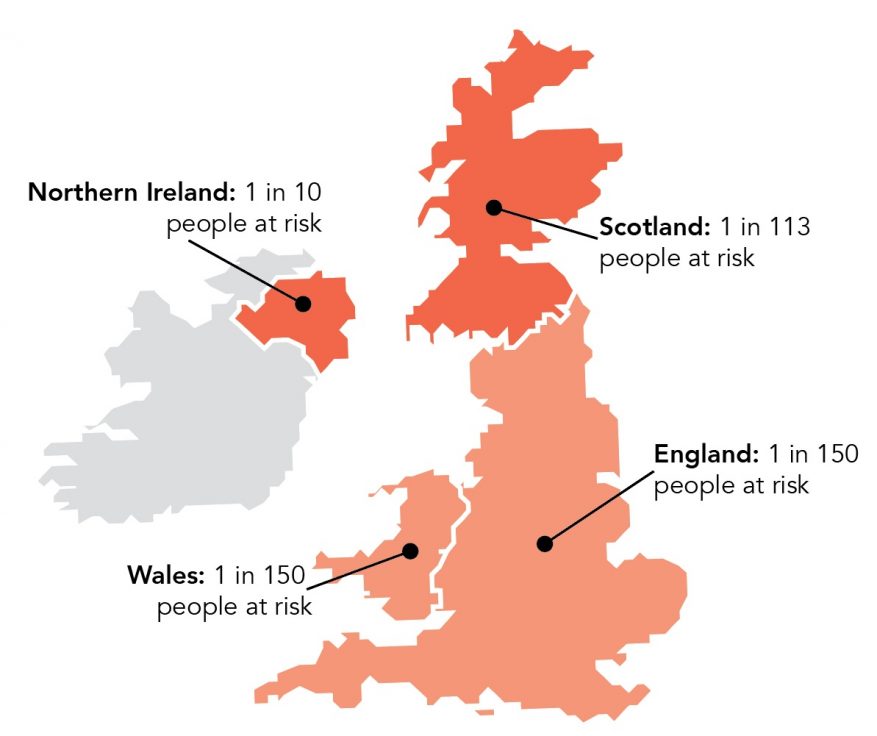Genetic Haemochromatosis (GH)
Genetic Haemochromatosis (GH)
Genetic Haemochromatosis (GH) is the UK’s most common inherited iron overload condition—yet it remains significantly underdiagnosed and often misunderstood. GH causes the body to absorb too much iron from food, which then builds up in organs such as the liver, heart, and pancreas, potentially leading to life-limiting complications if left untreated.
What is GH and what are the symptoms?
The symptoms of GH can be broad and non-specific, often making diagnosis difficult. Common signs include fatigue, joint pain, abdominal pain, and liver dysfunction. If diagnosed early, GH is manageable through regular venesection (blood removal), but untreated cases can result in serious health complications including liver disease, diabetes, heart disease, and arthritis.
👉 Learn more about GH symptoms and causes
Who does it affect?
GH affects approximately 1 in 150 people in the UK—making it one of the most common genetic conditions in Northern Europe. It’s particularly prevalent in people of Northern European descent, yet many remain unaware they carry the gene or have the condition.
A recent UK prevalence map shows notable regional variations in diagnosis rates.

Haemochromatosis UK
Haemochromatosis UK is the leading charity supporting individuals and families affected by the condition. They provide education, support, and advocacy, while also funding important research and screening programmes to increase early detection and improve outcomes.
🤝 Learn more about the charity
📬 Contact Haemochromatosis UK
Research and Screening Projects
In March 2023, Haemochromatosis UK published a landmark research paper based on their genetic screening project in Northern Ireland. The study revealed significant findings in early detection rates and helped build momentum for wider regional awareness.
Why awareness matters: Like many genetic and rare conditions, GH might not be considered a rare condition, but it is often missed or misattributed to other causes. Increasing awareness through education, early screening, and support is vital to improving health outcomes.


